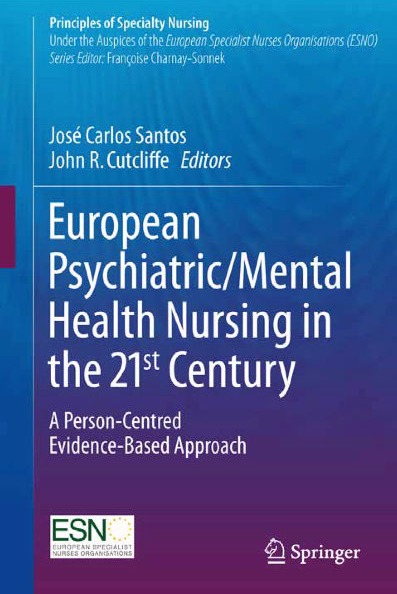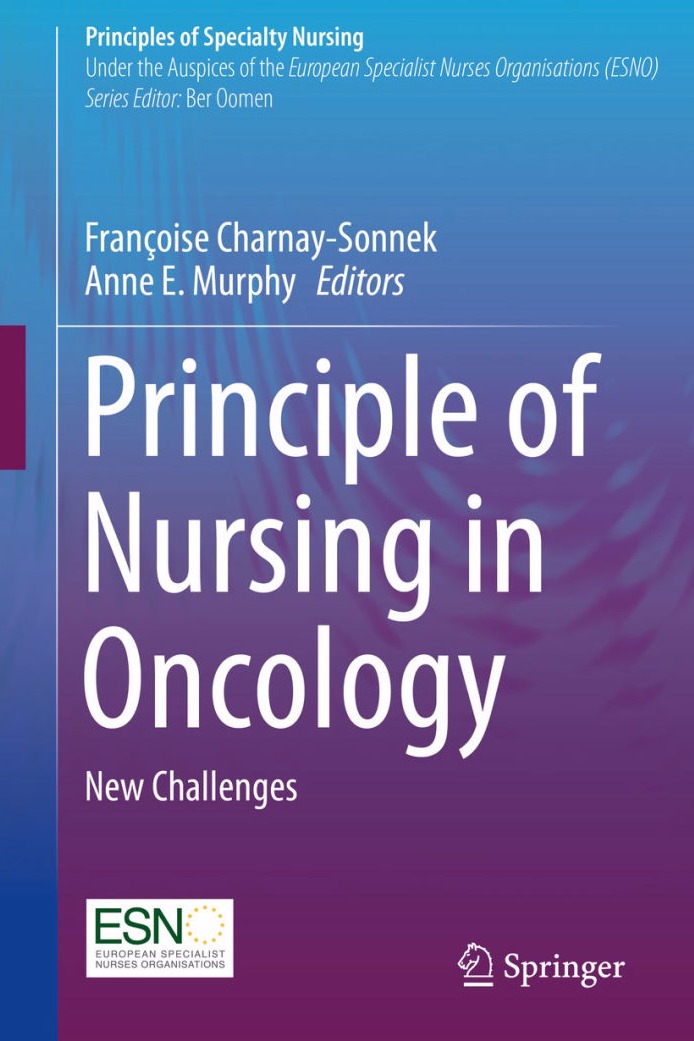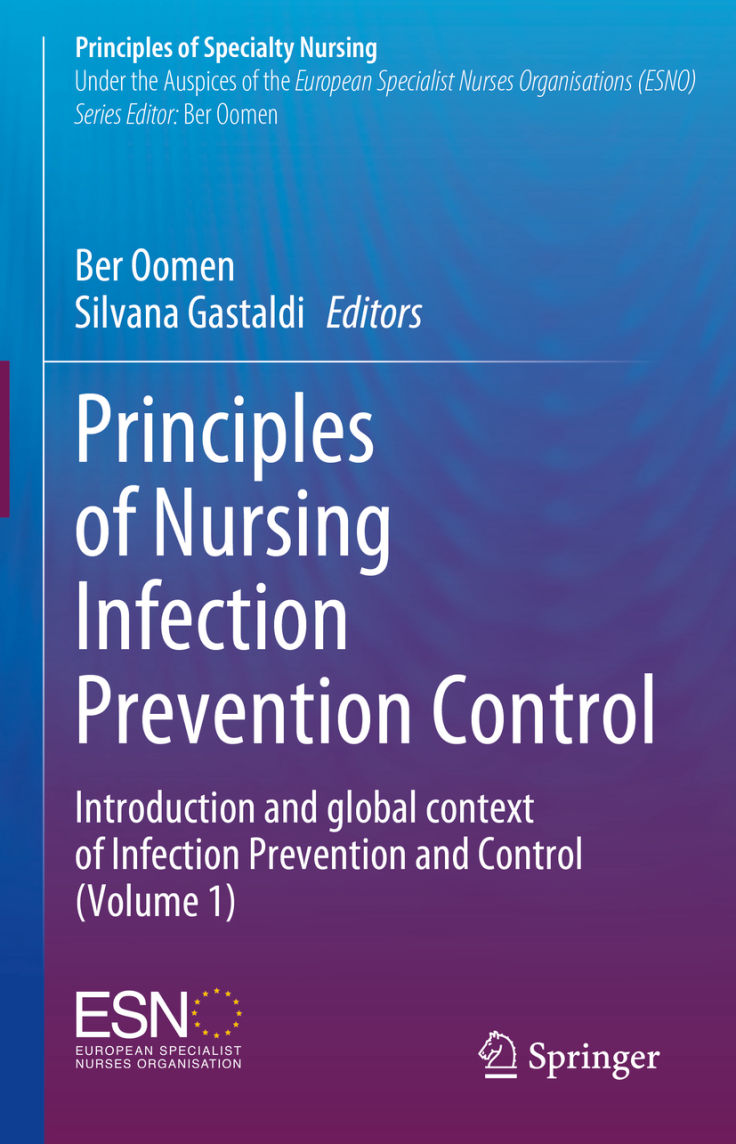Nurses across all specialties and domains find themselves in a significantly different landscape compared to a decade ago. These professionals are adapting to changes not only in healthcare, but also in broader areas such as economics, climate, digital innovation, and evolving roles and responsibilities. However, there is a noticeable imbalance in the national and institutional positioning of nurses, which impacts their status, self-confidence, overall well-being leading to outflow of the professionals and health workforce sustainability challenges. To address these challenges, ESNO has developed a new report, ‘Euro-Nurse 365’, which outlines the current situation and provide inside on the response. The report emphasizes the importance of creating a mechanism to facilitating education, certification of achievements, and recognition of nurses' autonomy. It also marks the medium-term ESNO campaign, Decade of the Specialist Nurse 2020–2030.
Elaborating on the Role of Specialist Nurses and Advanced Level in European Healthcare Towards 2030
This report is a result of a full year consultation with ESNO constituencies and partner organisation and discussed during a range of ESNO event. This was launched during the ESNO event in the EU parliament 10 October 2024. This report stresses the importance of these elements to enable a positive move towards the recognition of the specialist nurse profession in the European context as a key instrument on the retention, to the background of nurse shortage and outflow of healthcare professionals. Additionally, the report will focus on other aspects and obstacles that the European healthcare workforce and specialist nurses currently face.
ESNO is proud to publish the foundation of this Campaign, the outcome of a long process of events, which began during the ‘Year of the Nurse’ 2020 when the COVID pandemic, a culmination of a series of dramas that swept across European and hit the nursing profession hard, hurting its very foundation. However, the foundation did not crack. Instead, it became the foundation of discovering courage and strength, built on resilience and gained science. In short, this pandemic did not break us, but only made us stronger. However, this strength is sustainable only when it is strongly gathered up to create a new direction. This new direction requires time and support from all corners, not only nursing. This book sets out the road ahead of us with impressive programs and, finally, contributes to the quality of care, patient safety, and the recognition of our profession. It showcases its beauty and results in the retention and the attractiveness of the nursing profession.
During this unprecedented year in relation to the Corona-virus pandemic, our attention has focused on viral and other infectious diseases, and especially on vaccination. On top of this, there is also concern about nurses’ personal uptake of the influenza vaccination ‘with opinions being expressed without having heard the nurse’s voice‘. ESNO is a strong advocate and promoter of nursing knowledge and competencies related to infectious disease transmission and vaccination, but we are also interested in whether this contributes to your personal decision on vaccination uptake. In this survey we learned about personal motivation related to influenza vaccination and when available, the Corona-virus vaccination, and how this relates to Specialist Nurses professional activity and training needs.
This ESNO Nurse Curriculum on Vaccination, equips nurses with the knowledge, skills, and confidence to take a leading role in vaccination, strengthening European public health through expertise and trust. By providing a standards structured booklet, it gives a standardised approach, it enhances competencies in immunisation practices, patient education, and evidence-based decision-making. This framework ensures nurses are prepared to drive vaccination efforts, combat misinformation, and promote community protection. Designed to empower nursing professionals, the curriculum supports lifelong learning and professional growth, fostering a harmonised approach to vaccination across Europe. Based on the content, a book is in process of development and an online course, to launch end of year 2025.
The leadership of specialist nurses is undoubtedly present in the health sectors but is not sufficiently translated into policy and science. Healthcare professionals need to be trained and educated before they can carry out patient care. In the same way, reading scientific and medical publications needs a basic level of knowledge of the methodology of writing papers, to allow analysis of the validity of the data in an objective way. Also, understanding the elements on which the evidence is built allows us to acquire the skills to carry out our own research. The European macro-environment opens up important opportunities to exchange and share different professional cultures and to identify best practice. This guide provides a good insight about the ins and outs of science, on the reading and writing and above all to include this in clinical practice.
DOWNLOAD: EN - FR
This is the revised guide which supports nurses to be informed and well positioned when communicating, educating and providing patients information on biosimilar medication for safe and effective use. It also serves as an instrument to communicate with other healthcare practitioners such as pharmacists and medical professionals.
DOWNLOAD THE GUIDE: EN - IT - NL - DE - FR - ES - PO
TRANSLATORS NOTES: EN - IT - PO
Translation in the European special nurse’s domain requires respectful adaptation to the regulatory background and recognition of nationality and culture. For this reason, translations are accompanied with a personal translators note.
Coming soon: PT
READ THE PRESS RELEASE ON LAUNCH
LISTEN TO THE PODCAST: ‘The Nurses’ voice on #BiosimilarMedicines. An opportunity for integrated care’. Kate O’Regan of Medicine for Europe speaking with Adriano Friganovic and Hanneke Voorneveld.
WATCH THE POWERPOINT about the Biosimilar Guide
WATCH THE VIDEO: Introducing the ‘Biosimilar Guide Revision version 2022’ by Hanneke Voorneveld
FOR THE PRINTED VERSION CONTACT ESNO OFFICE
This competence profile has been designed to evolve over time. It is based on the current specific needs of plasma collection centers in Europe with regard to their operations. There is an urgency to create a competence profile for nurses in plasma collection centers so that nurses can not only provide greater support to physicians but also perform specific tasks when needed. The profile as described meets the essential aspects for nurses’ competence to act according to minimum standards.
The health and safety of nurses and other health professionals is supported and protected at work by employers, institutions and European legislation and regulations. Health and safety protection covers a range of areas, such as violence, mental health, sharps, chemicals, toxic medications such as cancer drugs, and surgical smoke. 'Hazardous surgical smoke: Nurses' Information, Education and Communication Guide' is the first of a series of eight guides to safety at work. This guide provides information for nurses on the full impact of surgical smoke, with a particular focus on nurses and other healthcare professionals working in the operating room.
ESNO developed a Nurses Information and Communication Guides on Microbes published in 2021. The guides provide information and support optimal communication around topics such as vaccination, anti microbial resistance and infection prevention and control. For the full project, click HERE.

EVOLUME 1: MENTAL/PSYCHIATRIC NURSING
This series, which encompasses books for each specialty, will shape evidence-based practice in Europe, while also integrating lessons learned from other continents. Moreover, it will contribute to clarifying the status of the specialist nurse as an advanced practice nurse.
EUROPEAN PSYCHIATRIC/MENTAL HEALTH NURSING IN THE 21ST CENTURY, A PERSON-CENTRED EVIDENCE-BASED APPROACH’ - EDITORS: SANTOS, JOSÉ CARLOS, CUTCLIFFE, JOHN R. (EDS.)
Sheds new light on practical issues based on evidence in psychiatric and mental health nursing.
CLICK HERE TO ORDER
ESNO Members receive 25% off the retail price.
Enter “ESNOmembers“ token. The price automatically reduces itself.
View the flyer HERE

PRINCIPLE OF NURSING IN ONCOLOGY - NEW CHALLENGES
EDITORS: CHARNAY-SONNEK, FRANCOISE, MURPHY, ANNE (EDS.)
This book provides a unique overview of oncology nursing care in a new health environment, one in which oncology nurses play an increasingly important role. In this regard, it addresses not only the biomedical aspects of new drugs but also the challenges they pose in day-to-day nursing practice. It also highlights the new skills that oncology nurses will need to develop in light of the changing care setting.
Drawing on evidence-based practice in Europe and around the globe, the book offers a holistic approach to nursing for adult and pediatric patients. Written by respected professionals in the field, it provides nurses interested in oncology with clear and comprehensive information on the specific abilities required, with a focus on therapeutic education, supportive care, genetic counseling and e-health. In addition, it addresses the new role of patients as decision makers and full partners throughout their treatment cycle.
CLICK HERE TO ORDER
ESNO Members receive 25% off the retail price.
Enter “ESNOmembers“ token. The price automatically reduces itself.
Under the Auspices of EDTNA/ERCA and EKPF
EDITORS: Afra Masià-Plana and Anastasia Liossatou
This textbook, endorsed by EDTNA/ERCA and ESNO, provides unique evidence-based knowledge about nursing in renal care and harmonises specialised understandings from various countries, to be implemented across numerous national health systems.
Renal care nursing is essential in order to promote and prevent renal health as well as detect and contribute to the care of renal disease. These complex tasks require specialised knowledge and training to ensure patient safety and positive outcomes in patient care. This book describes in detail the highest quality practices in different stages of the disease. Twenty-three chapters reflect evidence-based or consensus in practise, covering management and treatment in patient centred care procedures. Combining expert knowledge from many countries, this textbook can be used for teaching new staff in renal care as well as reviewing and updating renal care expertise.
CLICK HERE TO ORDER
ESNO Members receive 25% off the retail price.
Enter “ESNOmembers“ token. The price automatically reduces itself.

VOLUME 1
In today’s rapidly evolving healthcare landscape, nurses play a central role in Infection Prevention and Control (IPC). This first volume offers a comprehensive exploration of IPC, highlighting how nurses are not only key in daily practices but also in shaping policy and promoting a proactive, safety-first approach across healthcare systems.
This book is an essential resource for both novice and experienced nurses, covering:
• The historical roots of IPC, from Florence Nightingale to modern practices
• The complexities of infection control across diverse care settings
• Practical insights into microbiology, transmission pathways, and precautionary measures
• The evolving role of nurses in ensuring patient and public safety
With real-world relevance and a strong educational foundation, this publication is a valuable addition to professional libraries and nursing curricula.
CLICK HERE TO ORDER
ESNO Members receive 25% off the retail price.
Enter “ESNOmembers“ token. The price automatically reduces itself.